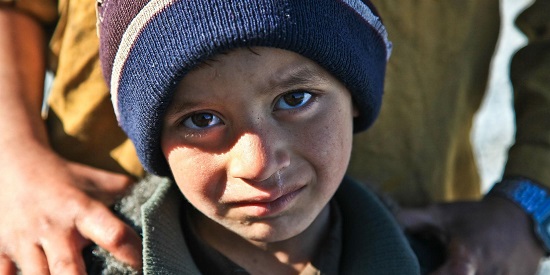Training available to equip teachers to better deal with student trauma
Media release
Deakin University's School of Education is offering a new graduate certificate program to help teachers navigate the difficult realm of student trauma.
The graduate certificate in Trauma Responsive Education will be offered to qualified teachers, early childhood educators, youth workers, and those working in humanitarian settings, starting in Trimester 2, 2022. It will involve conceptual exploration and practical case studies relevant to helping traumatised children and young people learn and thrive.
Head of Deakin's School of Education Professor Damian Blake said the course was designed to provide teachers with a deeper understanding of trauma and how it impacts student learning and behaviour.
"Trauma-responsive teachers recognise that trauma-impacted students are more likely to learn and thrive in an environment that feels safe and provides a sense of positive engagement in their learning community," Professor Blake said.
"These positive learning environments not only provide a protective buffer against triggers and additional stressors but also nurture resilience and healing.
"Trauma-responsive teachers are also more likely to protect themselves from the adverse effects of their students’ emotional pains."
The Organization for Economic Cooperation and Development (OECD) estimates that in a classroom of 20 students, at least three are likely to have had traumatic experiences. In Australia, the National Guidelines for Trauma-Aware Schooling also recognises the gravity of childhood trauma. In its 2021 national survey, Mission Australia reported that about 42 percent of young people who participated in the survey saw mental health as a serious concern that affected their study.
"We know trauma inhibits student learning, drives disruptive student behaviour leading to disengagement and increases teacher stress and attrition," Professor Blake said.
"At a societal level, trauma is costly too. It is estimated that annually unresolved childhood trauma costs Australian taxpayers as much as $24 billion.
School of Education Senior Lecturer Dr Tebeje Molla said teachers were dealing with unprecedented levels of trauma among their students after three years of major disasters, including the COVID-19 pandemic, bushfires and more recently the floods.
Dr Molla said this could result in unruly behaviour as children acted out.
A recent Australian study of 749 teachers showed more than half of respondents reported being stressed due to environmental factors, such as students' disruptive behaviour. The study also revealed some of the teachers considered leaving the profession.
"Teachers are also dealing with highly traumatised students from refugee backgrounds as well as victims of abuse and domestic trauma. Students in foster care and those who experience extreme poverty or identify themselves as LGBTQ+ are also likely to experience trauma that interferes with their learning and social interactions," Dr Molla said.
"In schools where trauma is not recognised as a serious factor that affects engagement and learning, survivor students are less likely to get the necessary support. Often traumatised children are restless and aggressive and get labelled as 'bad', and their suffering is missed.
"Trauma-responsive teachers are less likely to misdiagnose student behavioural problems as a marker of innate malevolence. They take time to understand the message of student behaviour and will ask trauma-affected students: 'what happened to you?' rather than 'what is wrong with you?'
"We hope with appropriate training, we can stop the flow of teachers out of the education system, raise student engagement levels and most importantly, ensure already traumatised students are not further traumatised by teachers unsure of how to manage the situation," Dr Molla said.
Principal of Geelong’s Newcomb Secondary College, Phil Honeywell said lots of students experienced trauma either at home or in other areas of their life.
"The onset of the COVID-19 pandemic served to compound the situation, with young people forced to cope with social isolation, fear, and uncertainty for more than two years. Add to that the pressures of catastrophic floods, climate change, and the fighting that’s been happening overseas, it’s natural for some children to feel traumatised," Mr Honeywell said.
"Having a course that teaches educators how to deal with this trauma will help achieve the best learning outcomes for these students and their classmates. They'll confidently be able to recognise the signs of trauma and respond accordingly."

